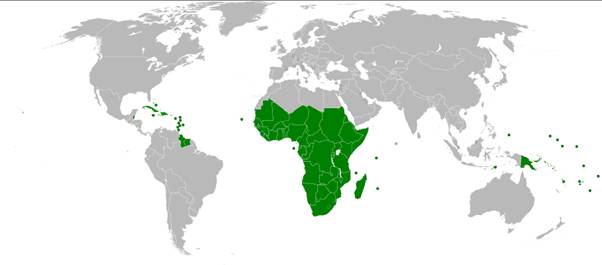Role of international trade - introduction

African, Caribbean and Pacific Group of States member nations
In this section we consider the following sub-topics in detail:
- Trade problems facing many economically less developed countries
- Trade strategies for economic growth and development
In section 4.3 we concentrated on looking at some of the domestic
factors that can affect the level of economic development of a country
and the livings standards of its citizens. Globalization has resulted
in people, goods, capital and ideas becoming increasingly
internationally mobile. Many of the factors that influence the level of
a country's development are international by nature.
World trade is very uneven and some countries rely more on it than
others. The vast majority of trade coming in developed world relates to
economic relationships with other developed economies. However, less
developed countries trade mainly with developed economies.
Trading by less developed countries has been growing faster than that by developed economies, but the individual, country-by-country growth rates have differed considerably. Despite the financial crises of the late 1990s and the first decade of the 2000s, many of the 'Tiger economies' have continued to grow, while in most of Africa lower growth rates have been recorded.
This section considers a number of problems that affect the capacity of less developed countries to make the gains from international trade that are enjoyed by more developed countries.